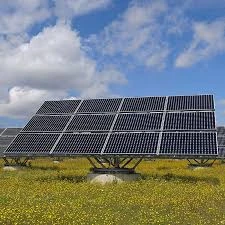off grid solar system
Off-Grid Solar Systems A Sustainable Solution for Energy Independence
In an era where energy security and sustainability are paramount, off-grid solar systems have emerged as a practical solution for those seeking independence from traditional power sources. These systems empower individuals and communities to generate and utilize their own electricity, often in remote locations where conventional power infrastructure is lacking or unreliable.
An off-grid solar system typically consists of solar panels, a charge controller, batteries for energy storage, and an inverter to convert the stored DC power into usable AC power. This configuration allows homeowners and businesses to harness solar energy during daylight hours, store any excess energy for use at night or during cloudy days, and ultimately reduce their dependence on grid electricity.
Off-Grid Solar Systems A Sustainable Solution for Energy Independence
In addition to financial savings, off-grid solar systems promote environmental sustainability. By relying on renewable energy sources, homeowners can significantly reduce their carbon footprint. This shift away from fossil fuels not only helps mitigate climate change effects but also fosters a healthier environment for future generations. As awareness of environmental issues grows, more individuals and communities are recognizing the importance of making eco-friendly energy choices.
off grid solar system

Off-grid solar systems also offer a reliable power source, especially in areas prone to power outages or natural disasters. Traditional power lines can be vulnerable to extreme weather conditions, leading to potential disruptions in service. In contrast, off-grid solar systems provide a consistent energy supply as long as there is sunlight. This reliability is especially crucial for critical services such as medical facilities, communication systems, and emergency shelters.
However, off-grid living is not without its challenges. Proper planning and understanding of energy needs are essential. Individuals must assess their energy consumption patterns and design a system that can meet their specific requirements. Oversizing or undersizing components can lead to inefficiencies and increased costs. Additionally, maintenance of the solar equipment is necessary to ensure optimal performance over time.
The off-grid solar lifestyle promotes a sense of self-sufficiency and resilience. Those who embrace this way of living often share a commitment to sustainable practices, such as energy conservation and responsible waste management. This lifestyle can lead to a stronger sense of community as neighbors come together to share resources, knowledge, and support.
As technology continues to advance, the future of off-grid solar systems looks bright. Innovations in solar panel efficiency, battery storage, and energy management systems are paving the way for more accessible and efficient off-grid solutions. With the growing awareness of climate change and the need for sustainable energy sources, off-grid solar systems are becoming an increasingly appealing choice for those looking to take control of their energy future.
In conclusion, off-grid solar systems represent not only a means of achieving energy independence but also a pathway towards a more sustainable and environmentally friendly future. By harnessing the power of the sun, individuals can reduce their reliance on fossil fuels, save money, and contribute to a healthier planet. The transition to off-grid solar is not merely a trend; it is a vital step towards a resilient and sustainable energy future.
-
Unlocking Energy Freedom with the Off Grid Solar InverterNewsJun.06,2025
-
Unlock More Solar Power with a High-Efficiency Bifacial Solar PanelNewsJun.06,2025
-
Power Your Future with High-Efficiency Monocrystalline Solar PanelsNewsJun.06,2025
-
Next-Gen Solar Power Starts with Micro Solar InvertersNewsJun.06,2025
-
Harnessing Peak Efficiency with the On Grid Solar InverterNewsJun.06,2025
-
Discover Unmatched Efficiency with the Latest String Solar InverterNewsJun.06,2025







